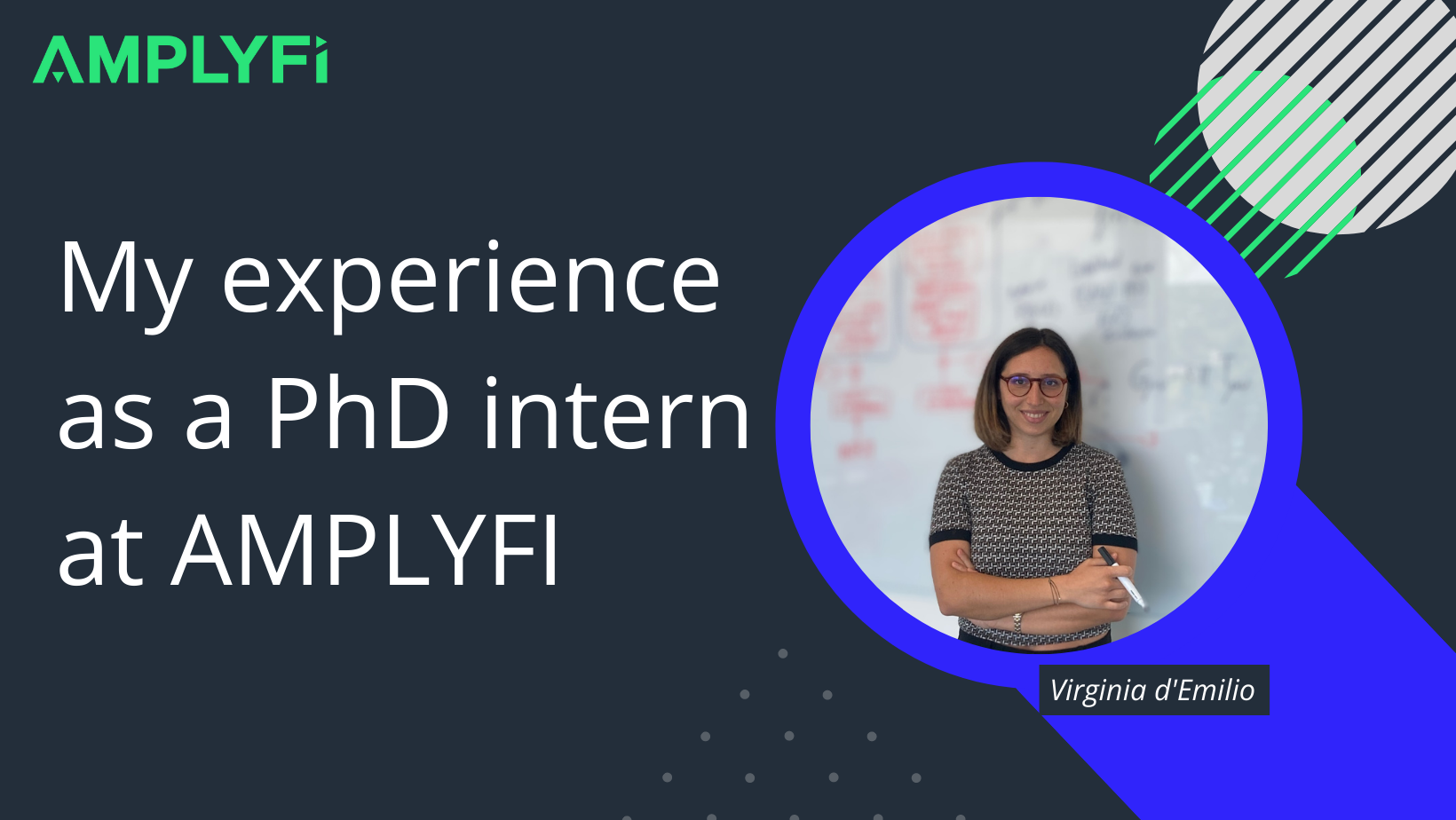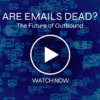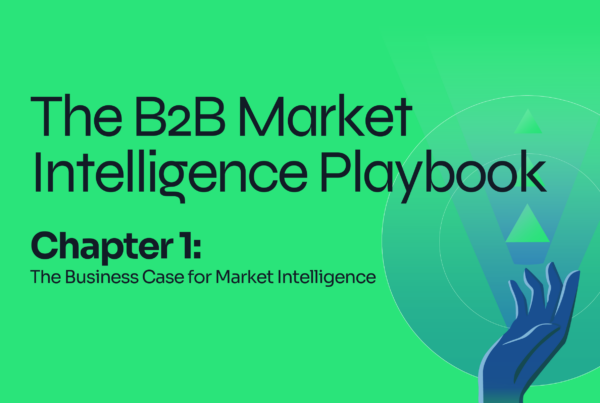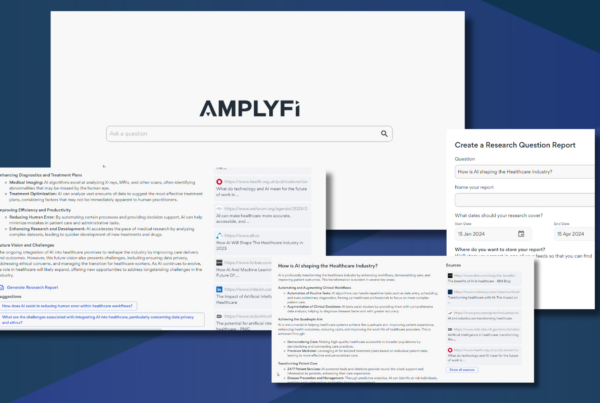
Discover Virginia d’Emilio’s journey from studying gravitational waves for her PhD to undertaking an industry placement at AMPLYFI
Virginia is an astrophysics PhD student at Cardiff University studying gravitational waves. As part of her PhD program, she was trained in machine learning techniques and has spent 6 months working at AMPLYFI as a Machine Learning Engineer.
For the past three and a half years I’ve been doing research on the collisions of astrophysical compact objects, such as black holes and neutron stars, that generate “ripples” through the fabric of space-time. I first became interested in the field of astrophysics in 2013, when all major newspapers reported stories on the inspiring life of Italian astrophysicist Margherita Hack, who had sadly passed that year. She was an outstanding scientist, a feminist and a civil rights activist, loved by the public for her sense of humour and bravery. Inspired by her, for the following 5 years I studied to become a scientist and started my PhD with Cardiff University’s Gravity Exploration Institute in 2018. I am very passionate about my research, and in January this year I took a leap into a whole new aspect of learning, as I started working at AMPLYFI as a machine learning engineer. As you might have guessed from the title of this blog, my experience going from academia to industry hasn’t been so terrible after all, in fact I want to explain why it has been great for me!
Why am I working in industry?
In the past few years, Research Councils in the UK have sponsored a novel kind of Physics PhD programmes that involve a six-month placement in industry. The uniqueness of these programmes is that the industry placement doesn’t have to be related to the research field of the PhD itself. This has allowed early career researchers in purely theoretical fields to get a taste of industry without leaving academia. One of these programmes is the Centre for Doctoral Training (CDT) at Cardiff University, of which I am a part of as a PhD student in gravitational waves astrophysics.
Why did I choose AMPLYFI?
For my industry placement I could choose any company that had a machine learning (ML) related department (and was open to employing an intern). AMPLYFI is a tech scaleup that helps businesses to unlock the power of the internet and improve their research and analysis capabilities. Their technology platform uses AI to read and analyse content, faster than any human can, and uncover previously hidden links, trends and opportunities. I chose AMPLYFI because I have always been very interested in natural language processing (NLP) technologies and I had a very good first impression of the machine learning team, especially as they had some members with a background in academia like me. Moreover, I was curious to explore a field distant from the realm of astrophysics, to truly make the most out of this unique opportunity.
”I was curious to explore a field distant from the realm of astrophysics, to truly make the most out of this unique opportunity
How is the work different from a PhD?
The initial transition from academia to business wasn’t as radical as I had initially thought. My first couple of weeks I got familiar with the type of NLP tasks ML engineers usually deal with at AMPLYFI, which involved preparing a literature review presentation and getting started on a relatively simple project. This wasn’t too dissimilar from my first few weeks of PhD. However, my research work for Cardiff University is fundamentally very different from the work I’ve been doing for AMPLYFI, as there is no factual knowledge overlap between NLP and physics. What allowed me to switch from one to the other without too many difficulties was that a lot of the tools (e.g. python) and skills (e.g. data analysis) required for both jobs are identical. It’s also worth saying that as part of the CDT program I attended a few courses in data science and machine learning which gave me a good starting base before delving into the advanced techniques. During my time at AMPLYFI, I also picked up new useful practices that can be transferable to different careers, such as regular self-reflection on my work, which helped me maintain focus throughout a project and kept me content and motivated each week by recognising the small victories along the way. I also noticed how, in my experience, academia tends to be more individualistic than industry. At AMPLYFI teamwork is highly valued as people from different teams are all working towards the same goal. As a result, effective communication is really important, especially being able to translate technical concepts in layman’s terms. Something that is not often practised in academia, where only specialised vocabulary is used.
”At AMPLYFI teamwork is highly valued as people from different teams are all working towards the same goal.
The work is also structured in a rather different manner, as in the ML team at AMPLYFI I have worked on several “small” projects, where the focus is very clear, and the scope is defined jointly by a team. This is because each project fits within the bigger picture that is the company’s product and what is most valuable for the users. In academic research projects this isn’t the case at all, as usually a project is defined by a supervisor and their student alone. Moreover, in academia there is an important exploratory component that means a project is more flexible in its focus and it can last many months or years. This felt like a refreshing and positive change for me, as I could quickly see good results and my work being integrated into the main product infrastructure and being used.
As a PhD student I could rely on the support and guidance of my supervisor and other researchers in my group. Similarly, at AMPLYFI I could count on senior ML engineers being always available to help, which allowed me to learn a lot from them.
How is the working environment at AMPLYFI?
Working for AMPLYFI has been very engaging and interesting for me. Two things that I enjoyed the most and that I thought were almost exclusive to academia were the flexible working hours and the “theory Thursday” meetings. The latter were an occasion for the ML team to stay up to date with the latest NLP research and learn some new techniques, quite similar in concept to an academic “journal club” where new scientific papers are being read collectively and discussed each week/month. During my last month at AMPLYFI some of us from the ML team had the chance to attend an NLP workshop organised by Cardiff’s School of Computer Science that aimed at bringing together academics and people in industry to discuss their joint efforts in the progression of the field. The workshop was in most aspects very similar to the academic conferences I attended as a physics PhD student. AMPLYFI’s involvement with academia and cutting edge research is another aspect that I found really and enjoyable.
The overall environment at AMPLYFI deserves praising too, as I had very enriching and positive interactions with colleagues working on different teams and areas of expertise. At Cardiff University, inclusivity and diversity is an issue people care about deeply. I was pleased to find that this was also the case at AMPLYFI, where I’ve been attending the monthly Women in AMPLYFI (WIA) meetings. These have been a fun and thought-provoking occasion for all female members of staff to come together and discuss topics such as gender balance in the tech industry and our personal experiences working in the field.
I strongly encourage prospective PhD students to sign up to CDT programmes like this as I think having an experience in industry is extremely valuable and enriching whether you want to have a career in academia or not. There is plenty of expertise and useful practices that can be learned from the industry sector and adopted in academic research. For me, experiencing a different working reality half-way through my PhD has been very revitalising and motivating. I am soon resuming my doctorate with newfound energy and the confidence that career opportunities outside academia are also looking bright.








